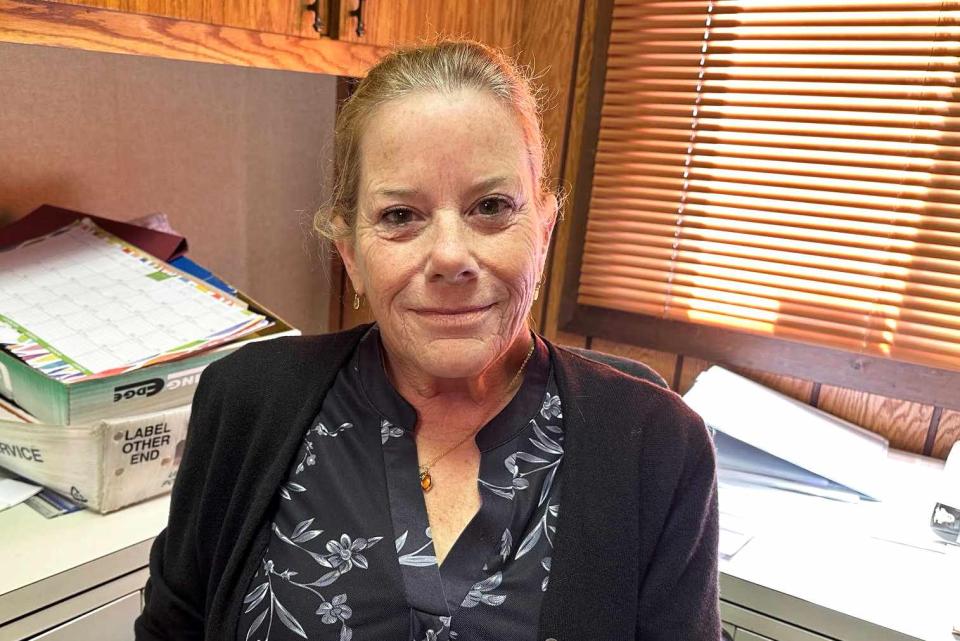The Endometriosis Advice I Give to My Daughters
And the Advice I Wish Someone Had Given to Me

Cari Reck
Fact checked by Nick Blackmer
Meet the Author
For more than 40 years, Cari Reck has had endometriosis. She volunteers for the nonprofit organization Endometriosis Association three days a week as an administrator and assists Mary Lou Ballweg, the founder.
I knew something was wrong when I first started menstruating at 12 years old. My periods were accompanied by incredible pain and lasted two weeks. Everything ached, it hurt to urinate, and my lower back felt like it was on fire. After being told by numerous doctors I was fine and it was all in my head, I finally found a physician who listened to me. I was officially diagnosed with severe endometriosis at 29 years old.
After numerous surgeries, I have not had significant symptoms of endometriosis since I was 51 years old (I’m 65 now).
Endometriosis is still, however, part of my life because both of my daughters have it. Their journey is, thankfully, different from mine as they received a diagnosis and treatment much quicker than I did.
Read on to learn my top advice for my daughters—or anyone with endometriosis.
Don’t Be Afraid to Ask for Help
For me, help meant having someone there during important conversations about my endometriosis journey.
An initial diagnosis of endometriosis is so overwhelming. I remember thinking, "How am I supposed to somehow connect the definition of this condition with my symptoms?" I often felt stuck, fixated, or lost in my appointments. Sitting there listening to the doctors speak, all the words would suddenly get jumbled together, and I would have no idea what had happened.
For me, having someone attend appointments with me was helpful.
Before my last surgery, which was complicated and potentially risky, I brought my daughter with me to my appointment. I was so afraid of the potential consequences of this bowel surgery (which included an ostomy and bladder bag). Thankfully, my daughter wrote everything down. After I settled, we reconvened, and she explained everything to me. It calmed my fears. My surgery was a success, and I never had any bags placed.
Find a Healthcare Provider You Can Connect With
If a doctor ever tells you the symptoms you’re experiencing are “in your head,” find a new doctor.
Finding a doctor who truly understands endometriosis and your symptoms is very important. And you deserve to be seen, heard and treated well. I had the most success with doctors who listened to me and took me seriously.
If you’re struggling to find a doctor, look to connect with other people who have endometriosis and ask about their experiences with their healthcare provider. Sometimes, word of mouth is the best way to find a great doctor.
Be Mindful of What You Eat and Drink
During my journey, certain dietary practices helped control my inflammation.
There was a time when I could not tolerate gluten. Ingesting gluten would cause me to become incredibly inflamed. For one year, I followed a strict gluten-free diet, which helped me to heal.
As a result of my surgeries for endometriosis, I developed GERD (gastroesophageal reflux disease, when stomach acid backs up into the food tube). I often have difficulty digesting spices and foods high in fat. About 36 years ago, I stopped drinking alcohol. That helped my inflammation, too.
I eat whole foods and generally consume a smoothie for breakfast and a protein, potato, and vegetable for lunch and dinner.
Connect With Community
For 40 years of my life, I have had endometriosis and been through it all with this condition. My experience has inspired me to pay it forward. As a volunteer for the Endometriosis Association, assisting the founder, doing administrative work, and spreading awareness, is extremely rewarding.
If you are dealing with this condition, find others who are sharing in this journey. Learn from them and support one another. This can help you to identify symptoms and develop strategies for coping, treatments, and living well with endometriosis.
As told to Barbie Cervoni, RD.
Read the original article on Verywell Health.

